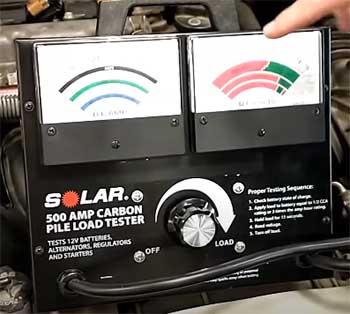Greetings All-
Bought a HF digital battery tester that reports battery health, CCA, etc. I know that battery output/capacity is highly dependent on ambient temp. For example ; at 80F its 100% and falls off to 40% at 0F. So...do the test results (AH, CCA, CA, health %, etc.) require temperature correction to the 80F standard? I tested mine yesterday; it reported battery health as 92%, AH as 80 (70 spec) at 70F. If it were instead 40F, would the results be significantly different and maybe indicate the battery was defective/weak when it was actually in great condition?
JHZR2 this is right up your alley...
Bought a HF digital battery tester that reports battery health, CCA, etc. I know that battery output/capacity is highly dependent on ambient temp. For example ; at 80F its 100% and falls off to 40% at 0F. So...do the test results (AH, CCA, CA, health %, etc.) require temperature correction to the 80F standard? I tested mine yesterday; it reported battery health as 92%, AH as 80 (70 spec) at 70F. If it were instead 40F, would the results be significantly different and maybe indicate the battery was defective/weak when it was actually in great condition?
JHZR2 this is right up your alley...

